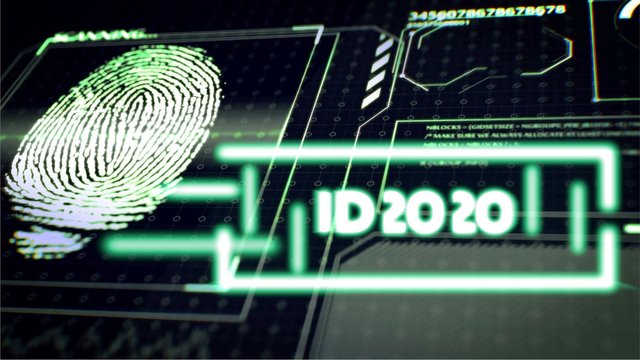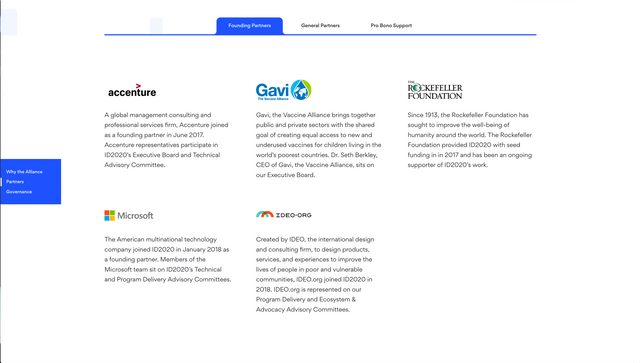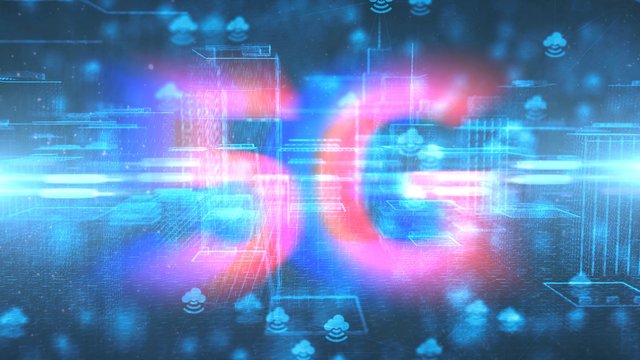
I received a guest essay from a follower of my Agenda 21 Truth - South Africa page, of which I am the founder, and have the author's permission to publish it here as a contribution for Agenda 21 Truth - South Africa
Credit: Dingiswayo Mthembu
Sickness, Surveillance, and Skepticism
The Covid-19 epidemic and associated lockdown measures worldwide have introduced an atmosphere of fear, uncertainty and mistrust not seen in recent times. From disputes surrounding the origins of the virus to its perceived exploitation for political ends, dissenters seem to have no shortage of misgivings as their numbers grow by the day.
In light of these concerns raised by many, and the subsequent dismissal thereof by most media channels and the greater scientific community, it is worth analyzing the plausibility of some of these claims using firsthand evidence, and providing an objective assessment of the validity of concerns.
The Sustainable Development Goals and ID2020
The United Nations Sustainable Development Goals (hereafter abbreviated to SDGs) is a set of 17 items intended to be accomplished by the year 2030, in line with the UN's 2030 Agenda for Sustainable Development. [1]
Of potential relevance are goals 3.8 and 16.9.
Goal 3.8 involves the provision of “affordable essential medicines and vaccines for all“.
Goal 16.9 states that the UN aims to “by 2030, provide legal identity for all, including birth registration”.
The ID2020 initiative pertains to the latter goal, explicitly citing the “right to recognition everywhere as a person before the law “ [2] as stated in Article 6 of the Universal Declaration of Human Rights, as well as target 16.9 of the SDGs, as the need to introduce a form of digital identity to be used globally.
It is framed in part as a charitable venture, referring to the lack of identity associated with billions of adults on the planet and, consequentially, their inability to receive services. To this end, the initiative argues, a universal digital identification system will grant “access healthcare and education, vote, and access other social assistance programs.”[2]
Regardless of intent, the notion of a centralized identification system used for the targeted distribution of resources and access to basic amenities is certainly at odds with a society in favour of freedom, and is eerily reminiscent of a myriad oft-cited novels on authoritarianism.
While methods of identification are currently used at a national and international level, one on the scale of a single digitized system is unprecedented, and it remains to be seen who would hold de facto control over such a system. Certainly, little assurance has been provided regarding the preservation of sovereignty, and that the overseers of this hypothetical system would not be able to supersede the authority of individual nations, given the UN's tenuous relationship with the notion of nationalism.
Probable cause?
Opponents of the SDGs have interpreted goal 3.9 as a statement of intent to mandate vaccines, though the official documentation consistently refrains from the use of such committal terminology.
However, a recent question-and-answer session on Reddit with Bill Gates regarding the Covid-19 epidemic sparked a frenzy the following response:

Microsoft co-founder Bill Gates is synonymous with vaccines, having pledged over $10 billion to the Decade of Vaccines initiative [3] and donated over $1.5 billion to the World Health Organization over the period 2009-2015. [4]
As such, he has been presented as a figure critical to the fight against the Covid-19 virus, to the extent that concerns have been raised over his apparent influence over public policy (due to his calls for a national shutdown in the USA and insistence that a return to normalcy would not be possible until a vaccine is developed) [5], and suspected ulterior motives behind his philanthropic ventures. Such accusations, while beyond the scope of this article, provide the basis for the skepticism that has recently surrounded Gates.
The statement regarding 'digital certificates' is definitely deserving of a closer look. Before trying to understand some relevant technologies, it is worth revisiting the ID2020 initiative.

On this list of ID2020 alliance partners, Microsoft and Gavi (and, perhaps, the Rockefeller foundation) stand out for obvious reasons. This, alongside Gates' recent comments, would suggest that links between vaccination and identification efforts are not entirely unfounded.
Identification technology
Several interesting technologies have been developed recently with regards to identification. Of these, two are especially relevant to discussions involving vaccination.
The first of these, a study titled “Biocompatible near-infrared quantum dots delivered to the skin by microneedle patches record vaccination” [6] explicitly describes a means of permanent identification associated with vaccines.
This method involves the delivery, alongside vaccines, of microparticles into the skin. Such particles, though invisible to the naked eye, emit near-infrared light which allows detection by specialized smartphones to indicate that the subject has received the necessary vaccine. Robert Langer, one of the paper's authors, has stated that the technology shows potential for “data storage, biosensing, and vaccine applications that could improve how medical care is provided, particularly in the developing world “. [7] Tests performed on the skin of cadavers suggests that these particles remain in the skin after being subjected to the equivalent of 5 years of exposure to the sun.
Also worth noting is the fact that this particular study received funding from the Bill & Melinda Gates Foundation.
A recent patent may also provide some clues. Microsoft's “Cryptocurrency Body System Using Body Activity Data” [8] describes a method by which the energy-intensive process of cryptocurrency mining may be made easier using data generated from body activity such as brain activity or heat, using a variety of sensors – some of which need not be physically attached to the target.
While undoubtedly technologically meritorious, concerns have arisen regarding the degree of control this affords to any central authority in charge of determining how precisely such currency is distributed, and exactly which tasks warrant reward. It is unlikely that this technology will see implementation in the near future, but the potential for authoritarian abuse of such a system is not to be underestimated.
Any identification-based system based on this technology would not need to involve invasive measures, as it would depend on the collection of biometric data using sensors that need not be implanted into the user, though it should be noted that the patent does not describe any such application for the technology - which, of course, does not eliminate the possibility of its use for such ends.
Of course, in order to realize a vision on the scale of that described in the “Cryptocurrency Body System” patent, near-instantaneous transmission of data between millions of electronic devices is a necessity.
Enter 5G cellular technology..
The role of 5G
5G refers to the fifth generation of wireless cellular technology. Without an elaborate discussion on how precisely such technology works, its purported benefits over previous generations can be succinctly described thus [9] :
• lower latency (delay between an input on a device and the occurrence of the desired action) by a factor of up to 10 compared to 4G
• Much faster data speeds (data transfer of up to 20 Gigabits per second)
• Many more devices may be connected to the network at once
Opponents of 5G cellular technology focus primarily on its purported health detriments. In spite of assurances of safety [10], some members of the public remain convinced of cataclysmic death, extra limbs, and a host of other threats that are perhaps severely lacking in evidence and also not of relevance to this discussion.
What has received less attention than warranted, however, is the potential for 5G technology as a tool for surveillance. The potential for millions of devices connected to the network per square kilometre, transferring data at virtually instantaneous speeds, opens the possibility of full remote control and monitoring of entire cities via video surveillance. The advent of 5G, some argue, equips the state with the necessary tools to create and maintain an Orwellian dystopia.
Not all attitudes towards a possible descent into authoritarianism are negative. China, for instance, has embraced the surveillance potential of 5G network for identifying criminals and wrongdoers, as is seen in China Telecom's advertising campaign [11].
Representatives of Nokia have gone so far as to tout the notion of a camera-filled, surveillance-driven “Smart City” as a boon [12], while also suggesting that technologies like Nokia's own “Scene Analytics” are helpful in mitigating concerns surrounding the creation of a 'Big Brother' society in which privacy is disregarded. Of course, such measures would still be at the mercy of the technology's proprietors and/or the state, so can hardly be accepted as a guarantee.
The UN has seemingly embraced the potential of Smart Cities, too, citing their role in sustainable development and the realization of the SDGs [13]. Proponents of such urban planning believe that the ability to collect data and analytics regarding the everyday function of a city allows for reductions in crime, better service delivery, and overall more efficient societies.
Accenture, one of the partners in the ID2020 initiative, explicitly states a case for the role of 5G in the implementation of the Smart City vision, touting the potential for economic growth and job creation, as well as improvements in energy and utilities, transportation and public safety [14]. This would, of course, be accomplished by constant surveillance using cameras and sensors, providing the state with instantaneous, almost-absolute control over every facet of the city's management.
Few, if any, assurances regarding privacy are given by either the UN or Accenture in their descriptions.
Recent events seem to have accelerated the adoption of 5G technology in numerous locations.
South Africa's government has authorized the use of additional spectrum in the supposed interest of allowing for easier communication during the Covid-19 lockdown [15].
In the United States of America, the need for greater connectivity for the purposes of employment, education and entertainment has similarly led to concerns over whether current networks can handle the increased demand. Verizon CEO Hans Vestberg suggested that half of the USA could have access to 5G by the end of 2020 [16].
Final analysis
Without first-hand participation in the decision-making processes undertaken by governments, corporations and international bodies, it is impossible to speak with certainty regarding the motives behind the initiatives discussed, or whether they are at all linked.
However, there is clearly plenty of evidence to stoke the fires of doubt surrounding recent technological and political developments and their possible role towards authoritarian aims. Links previously dismissed as conspiracy, such as those between vaccination and identification, can no longer be ignored in light of the explicit relationship between the two campaigns, and the technological framework will soon be in place for the establishment of a fully-controlled society, should those in charge so desire.
Those who value freedom and individual rights would be advised to pay careful attention to the coming developments in this regard, and not be so quick to dismiss suggestions that the intentions of governing bodies are not as pure as claimed.
We are funded by our followers: https://www.paypal.me/aquahelix
Or at: https://gogetfunding.com/a21truthza/
Ethereum: 0xD1243D2A9630f3D4f7117d0aAF88bA1A2D0016cc
References:
[1] SGD documentation
[2] ID2020 website
https://id2020.org/digital-identity
[3]Gates foundation $10 billion for Decade of Vaccines
[4] WHO donations 2009-2015
https://iatiregistry.org/publisher/bmgf
[5] Bill Gates: State-by-state shutdown won't work
[6] Vaccine identification study
https://stm.sciencemag.org/content/11/523/eaay7162
[7] vaccine identification MIT
http://news.mit.edu/2019/storing-vaccine-history-skin-1218
[8] Cryptocurrency System Using Body Activity Data
https://patentscope.wipo.int/search/en/detail.jsf?docId=WO2020060606&tab=PCTDESCRIPTION
[9] 5G benefits
https://www.iotsworldcongress.com/advantatges-of-5g-and-how-will-benefit-iot/
[10] ICNIRP 5G
https://www.icnirp.org/en/applications/5g/index.html
[11] China Telecom Advertisement
https://telecoms.com/501785/china-telecom-celebrates-the-state-surveillance-potential-of-5g/
[12] Nokia “Smart City”
https://www.nokia.com/blog/when-5g-and-video-surveillance-met-smart-city/
[13] UN Sustainable Development - Smart Cities
https://sustainabledevelopment.un.org/partnership/?p=10009
[14] Accenture: Smart Cities – How 5G Can Help Municipalities Become Vibrant Smart Cities
[15] South Africa authorizes 5G spectrum
[16] CNBC: Why the Coronavirus Pandemic May Fast-Forward 5G Adoption

https://www.game.tv/tournaments/2020-Breeders'-Cup-Live-Stream-Horse-Racing-Free--86aebf0b4b6544f5bb7485465d01b658
https://www.game.tv/tournaments/Horse-Race2020-Breeders'-Cup-Live-Stream--f508b901169f4004b2c045868a35412e
https://www.game.tv/tournaments/LiVeStrEaMBreeders'-Cup-2020-Live--0a02b9510cae41cea1e9ddb8469dfc63
Downvoting a post can decrease pending rewards and make it less visible. Common reasons:
Submit